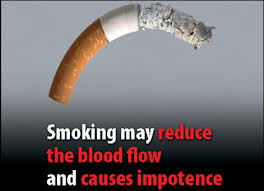Erectile Dysfunction Over 50
and Relationships
Erectile Dysfunction Is An Important Concern
Erectile dysfunction (ED) can be both a sign that things are not working right with the body, mind, & emotions, and also be a cause of things not working right in the same systems.

It has strong effects on relationships. In the best of cases the changes can make relationships stronger and more enjoyable even if the specifics of the dysfunction cannot be completely turned around. In the worst of cases, it can result in the destruction of emotional and physical intimacy.
It definitely merits a trip to the doctor.
Inability to get or keep an erection can an early warning of developing
underlying conditions that are affecting circulation, sometimes showing
up before any other signs. Having a clearer picture of your situation
from a medical perspective is definitely the first step.
There
are lots of things to do about ED. Some are medical, some
psychological/emotional, some mechanical, and some in the
diet/exercise/healthy life realm.
Of course the topic itself may make taking action a bit difficult at times, but the stakes are high and once you get going, it gets easier. What wouldn't you be willing to do if could make this problem go away or at least retreat?
Just what IS erectile dysfunction (ED), anyway?
- In common usage it means that a guy can't get it up and/or keep it up hard enough and/or long enough to complete the intended sexual act.
- Some sources say it is different
from impotence which refers to the ability to impregnate a female and
also includes problems with sperm production, lack of sexual desire,
etc., but but many use the terms interchangeably.
- Since
erectile dysfunction, or ED, can be defined as a total inability to
achieve erection, an inconsistent ability to do so, or a tendency to
sustain only brief erections, estimating its incidence is difficult, but
recent educated guesses range from 15 million to 30 million men in the
US having the problem at any one time.
According to the National Ambulatory Medical Care Survey (NAMCS), for every 1,000 men in the United States, 7.7 physician office visits were made for erectile dysfunction in 1985. By 1999, that rate had nearly tripled to 22.3. Most likely this wasn't because the problem was occurring more, but because more guys were telling their doctors about it. The increase happened gradually, presumably as treatments such as vacuum devices, injectable drugs, and oral medications became more widely available and discussing erectile function became accepted. - Still, no matter how you say it, no matter how many guys have it, no matter how many things you can do about it, it sucks. But, you can only play the cards in your hand, so let's get a better look at just what we're dealing with.
The mechanism of erections is very complex
The the penis is complex set of tubes, compartments, arteries, veins, and nerves.
The
largest portion of it is made up of two chambers filled with spongy
tissue, which run the length on each side. These are the spaces that
fill up with blood causing the whole penis to get hard and stand up
erect. The spongy tissue contains smooth muscles, fibrous tissues,
spaces, veins, and arteries.
The urethra, which is the
channel for urine and ejaculate, runs along the underside of the corpora
cavernosa and is surrounded by the chambers of spongy tissue.
Erection begins with physical or mental stimulation, or both.
Impulses
from the brain, the spinal cord, and local nerves cause the muscles of
the two chambers of spongy tissue to relax, allowing blood to flow in
and fill the spaces. The blood creates pressure, making the penis expand
like a balloon. The chambers trap the blood within them, thereby
holding the erection.
When the muscles in the penis contract to stop the inflow of blood and open outflow channels, erection is reversed.
The
system is a marvel (or accident waiting to happen, depending on how you
look at it) of thoughts, feelings, muscles, nerves, and blood
interacting in just the right way.
Bring another person into it
and the complexity is mind boggling. Indeed, that it works so well so often for so long.

The National Institutes of Health will tell you more than you want to know on this topic. I have put some of the high points from their description on this page. If knowing all the details is helpful to your process you can get their full description....CLICK HERE
There are many factors that can impact the ability to get and maintain an erection.
Here are some things that have been mentioned in various places as potentially being involved in erectile dysfunction
- age
The older you are, the more likely you are to experience erectile dysfunction. The NIH reports that erectile dysfunction affects about 5% of 40 year old men and between 15% and 25% of 65 year old men, but it is not caused by aging per se. However, the older you are, the more likely ED is to be caused by something physical, so talk to your doctor. I've read estimates of up to 80% physical causes after 50.
 Healthy lifestyle helps with ED
Healthy lifestyle helps with ED- The same list of health/lifestyle choices that weigh on our health in general as we age: alcohol, cholesterol, blood pressure, weight, mood, healthy nutrition. Which results in a can't-lose situation since any improvement in any one of these areas affects your whole life positively as well your ability to get and keep an erection.
- diabetes, many cases of which can be affected by the previously mentioned lifestyle changes
 Stopping smoking is the most powerful lifestyle change
Stopping smoking is the most powerful lifestyle changevascular problems ( blood, arteries, veins, etc.) In fact, recent studies seem to be showing that it can be an early signal of developing cardiovascular problems. Find more on erectile dysfunction as an early sign of other problems here.
And . . . if you smoke, stop. It's a killer going and coming.
- some people say that large amount of marijuana or steroids can cause it
 Side effects of some medicines include ED
Side effects of some medicines include ED- some medicines . . . including but not limited to those for blood pressure and depression. Make sure that the doctor knows that your sexual functioning is important to you. The older you are, (and probably the younger they are,) the greater the chance that someone will assume that you don't care about sex anymore, especially if you are single. Often there is another medication that will do the job that may not have the same side effects. Tell them what is going on with you. This is a case where being a "good soldier" who doesn't complain is dumb.
There are many things that you can do about it
Don't let yourself get into a hopeless mode.
Talk to your doctor about it. If you feel like you can't talk to you doctor, it is important that you do something about that.
Anyway, right now the list includes
- stress management
HINT: Did you know that the nerves that control erection are different from the nerves that that are involved in feeling and orgasm? Think creatively here.
Earlier I suggested that you consider ED to be the inability to get and/or keep an erection that will do what you want it to do. That depends on what you want it to do. Oh, the medical sorts will still define the system as dysfunctional, but after we leave their office we still have a life to live and get something out of.
Mick Jagger had this one bang on when he said that you can't always get what you want, but if you try sometimes you can get what you need. Who knows? Maybe he was having a bout of erectile dysfunction at the time.
Is calling erectile dysfunction "relationship challenge" cruel, the understatement of the century, blind optimism, or just plain pragmatism?
Maybe it is a bit of all four, but what choice do you have?
In addition to the medical approaches, information on other potential options definitely exists.
After the situation is as clear as possible from the medical perspective . . . and only then in my opinion,. . . you will want to check out one or a couple of the following. They all are available immediately and come with a 60 day no-questions return policy. (I've used the return policy on occasion and it was indeed no hassle.)
Click on a link below and read the information there about each program to decide which is right for you.
Cure Erectile Dysfunction - Blue Heron Health News .. CLICK HERE!
Beating Erectile Function Program - - CLICK HERE!
Dr. Block's Wellness Program - - CLICK HERE!
Note: These are affiliate links. Should you choose to buy one of their products I will get a commission. If you do not want this to happen you can go directly to their website and buy from them, though the price will be the same.
Psychological and relationship factors are important
While the medical and physical options are the place to start, . . . the psychological and relational side of this situation can actually result in some very positive things happening . . . no matter what the result of the medical intervention.
Coping with impotence
calls for involvement of mind, body, and spirit in ways that can indeed
make aspects of life and aging and relating better and more rewarding
in ways that cannot be predicted before you start doing it. For a bit
more on this topic CLICK HERE.
When
you can't get it up, the list of assumptions and beliefs that come
pouring into your head about being a man, being with a woman, sexual
attractiveness, human frailty, and others that we didn't know we had can
be pretty frightening.
This calls for a lot of informed,
respectful, and direct talk between you and your partner if things
aren't to take off in a bad direction.
Find a discussion of specific things that you can do to give yourself the best chance of positive results from talking about your ED here.
If you are the partner of a man with ED, find more on talking with him about it here.
Professional Help for Erectile Dysfunction
For
More InformationAmerican Urological Association (AUA)1000 Corporate
Boulevard, Linthicum, MD 21090 Phone: 1–866–RING–AUA (746–4282) or
410–689–3700Fax: 410–689–3800Email: aua@auanet.orgInternet www.auanet.org
www.urologyhealth.org
AUA can refer you to a urologist in your area.
American
Diabetes Association (ADA)Attn: National Call Center1701 North
Beauregard Stree,t Alexandria, VA 22311Phone: 1–800–DIABETES
(342–2383)Internet:www.diabetes.org
ADA can help you find a doctor who specializes in diabetes care in your area.
American
Association of Sex Educators, Counselors, and Therapists (AASECT)P.O.
Box 1960 Ashland, VA 23005–1960Phone: 804–752–0026Fax:
804–752–0056Internet:www.aasect.org
Check the AASECT website to find a certified sexuality educator, counselor, or therapist in your area.
National
Kidney and Urologic Diseases Information Clearinghouse3 Information Way
Bethesda, MD 20892–3580 Phone: 1–800–891–5390Fax: 703–738–4929 Email:
nkudic@info.niddk.nih.gov Internet:
Return from Erectile Dysfunction to Home Page
Copyright @ 2008 - 2018 Better-Relationships-Over-50.com